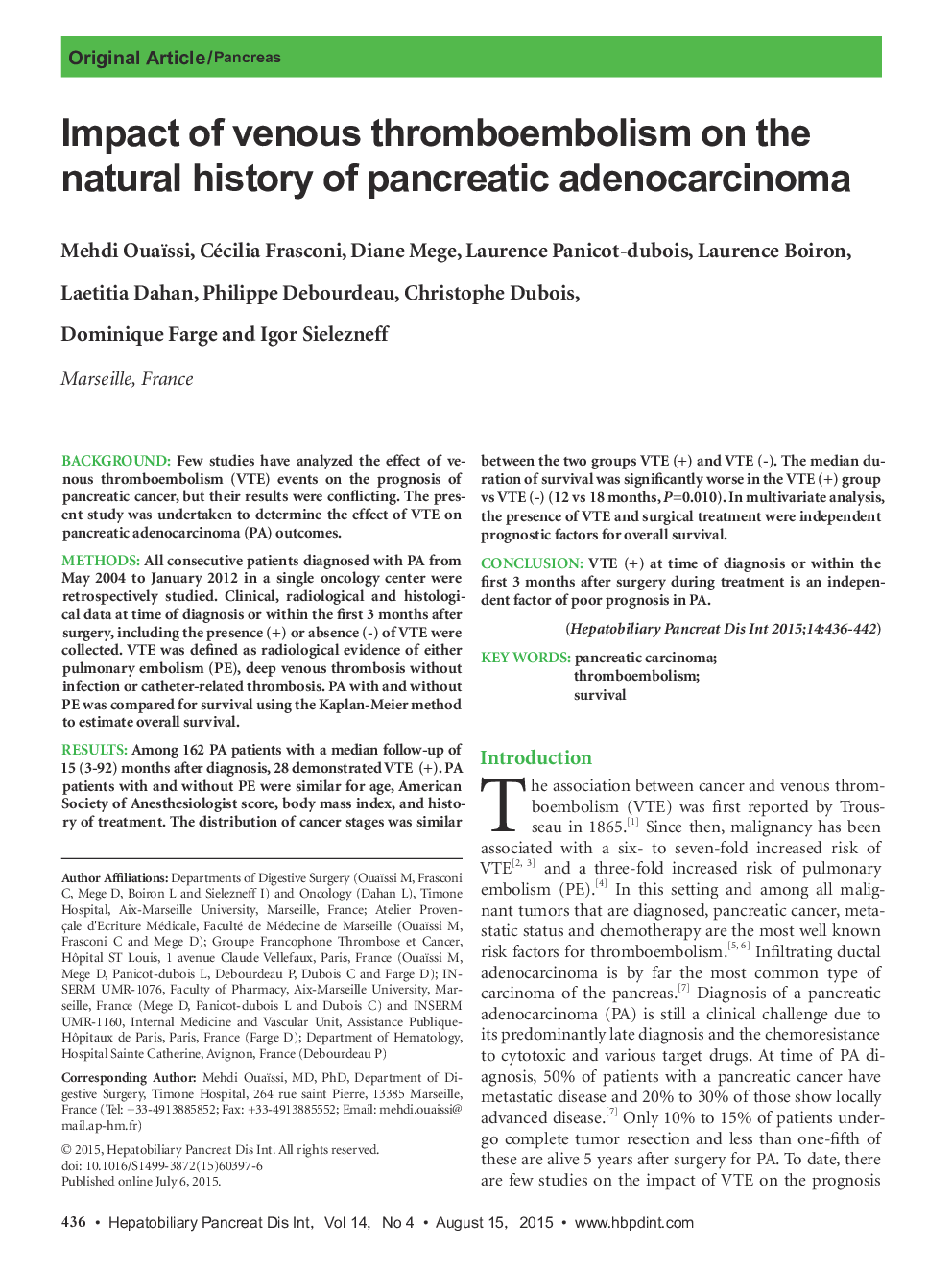| Article ID | Journal | Published Year | Pages | File Type |
|---|---|---|---|---|
| 3337160 | Hepatobiliary & Pancreatic Diseases International | 2015 | 7 Pages |
BackgroundFew studies have analyzed the effect of venous thromboembolism (VTE) events on the prognosis of pancreatic cancer, but their results were conflicting. The present study was undertaken to determine the effect of VTE on pancreatic adenocarcinoma (PA) outcomes.MethodsAll consecutive patients diagnosed with PA from May 2004 to January 2012 in a single oncology center were retrospectively studied. Clinical, radiological and histological data at time of diagnosis or within the first 3 months after surgery, including the presence (+) or absence (−) of VTE were collected. VTE was defined as radiological evidence of either pulmonary embolism (PE), deep venous thrombosis without infection or catheter-related thrombosis. PA with and without PE was compared for survival using the Kaplan-Meier method to estimate overall survival.ResultsAmong 162 PA patients with a median follow-up of 15 (3-92) months after diagnosis, 28 demonstrated VTE (+). PA patients with and without PE were similar for age, American Society of Anesthesiologist score, body mass index, and history of treatment. The distribution of cancer stages was similar between the two groups VTE (+) and VTE (−). The median duration of survival was significantly worse in the VTE (+) group vs VTE (−) (12 vs 18 months, P=0.010). In multivariate analysis, the presence of VTE and surgical treatment were independent prognostic factors for overall survival.ConclusionVTE (+) at time of diagnosis or within the first 3 months after surgery during treatment is an independent factor of poor prognosis in PA.
